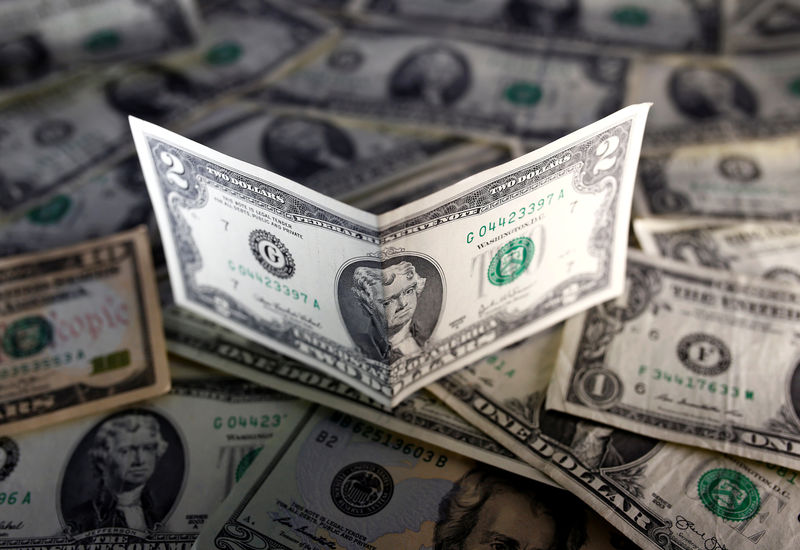Dollar Gains on Soaring Yields; Sterling Slumps on Political Strife

© Reuters.
By Peter Nurse
Investing.com – The U.S. dollar climbed in early European trade Tuesday after a hefty rate hike by Australia’s central bank prompted further inflation concerns, causing U.S. bond yields to soar.
At 2:50 AM ET (0650 GMT), the , which tracks the greenback against a basket of six other currencies, traded 0.2% higher at 102.623.
The raised its by 50 basis points earlier Tuesday, a more hawkish move than the 25 basis point increase that most had expected, while also committing to doing “what is necessary” to cool inflation.
climbed as high as 0.7243, before handing back most of the gains to stand 0.1% higher at 0.7199.
The fact the Australian policymakers felt the need to increase interest rates by a hefty half a percentage point has caused nerves to fray ahead of Friday’s figures, especially after the strong at the end of last week.
The May CPI release will provide more clues on the Fed’s rate-hiking path, ahead of next week’s policy decision, and concerns are growing that upward price pressures will be around for longer, potentially forcing more aggressive action from the Fed.
The U.S. Treasury yield was last seen trading at 3.047%, at levels seen for the first time in nearly four weeks.
This resulted in soaring 0.6% to 132.69, climbing to a fresh two-decade high, with the yield differentials weighing heavily on the yen as the equivalent Japanese yields are pinned near zero.
fell 0.1% to 1.0688 after fell 2.7% on the month in April, suggesting the Eurozone’s largest economy looks set for at least one quarter of economic contraction.
That said, the main focus is on Thursday’s meeting by the , which is expected to prepare the ground for an hike at its July meeting.
“Markets are attaching a close-to-zero probability of a rate hike, which would be in contrast with recent ECB communication indicating July as the start of the tightening cycle,” said analysts at ING, in a note.
fell 0.5% to 1.2469 after U.K. Prime Minister survived a vote of no-confidence overnight but was left severely weakened.
Even without the political turmoil, “the pound remains vulnerable in the short term given worsening growth prospects and a potential re-pricing of BoE rate expectations,” said ING. “A break below 1.2500 in cable could see the pair extend losses to the 1.2300-1.2350 area this week.”
Read More: Dollar Gains on Soaring Yields; Sterling Slumps on Political Strife
